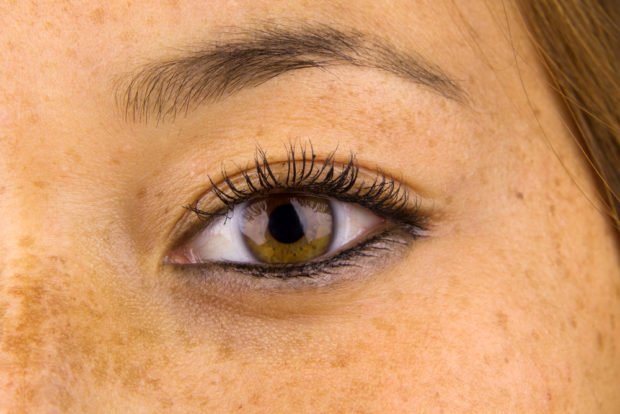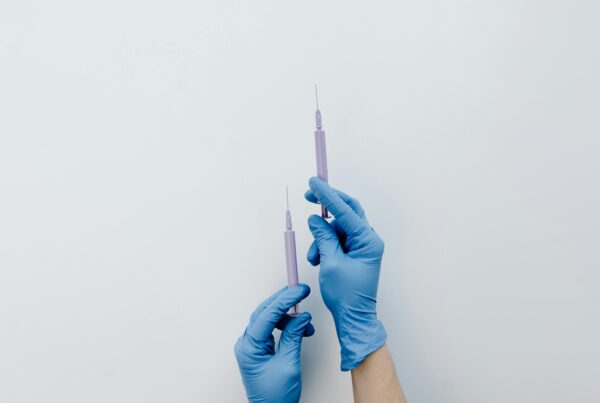It’s no secret that a woman’s body goes through a lot of changes during pregnancy. These changes also affect the skin. The hormonal changes a woman goes through during the various stages of pregnancy may disrupt the skin’s delicate balance. This results in everything from dehydration to breakouts and hyperpigmentation.
Your pre-pregnancy skincare routine will likely not suffice for the new challenges brought on by pregnancy. Also, if you use products containing active ingredients, you may need to reconsider your regime as the ingredients may not be safe for your baby.
Common pregnancy skin concerns
For most women, pregnancy brings on a radiant glow, especially during the first trimester. This is due to an increase in blood flow, fluctuating hormone levels, and increased oil production. Sadly, this glow doesn’t always last, and as a woman’s pregnancy journey evolves, she may begin to experience less desirable skincare changes.
Some of the most common skin concerns women experience during pregnancy are:
Acne
Acne is common among pregnant women, especially among those who have a history of acne or those who experience hormonal acne linked to their menstrual cycle. The change in hormones and increased oil production that creates that pregnancy glow may lead to clogged pores and an increase in breakouts. This may range from occasional breakouts to severe acne.
Hyperpigmentation
Have you ever heard of the “pregnancy mask”? Also known as melasma, it refers to a condition in which women develop dark marks on their skin during pregnancy. For some women, it may be small freckle-like spots, and for others, it may be larger, blotchy patches.
Melasma is often symmetrical and occurs mostly on the nose and cheeks. This is where the term “mask of pregnancy” comes from. Yet, it may also appear on the upper lip and forehead. Anyone can develop melasma, but it is particularly common among women with darker skin.

Steven Frame/Shutterstock
Melasma occurs when a steep rise in the hormone estrogen and progesterone stimulates excess melanin production in the body. It usually develops during the second and third trimesters, when these hormones are found at higher levels in the body.
Melasma may be intensified by sun exposure. One of the most important things you can do to avoid this is to protect your skin against the sun’s rays by applying a broad-spectrum SPF product every day. The good news is that melasma is typically temporary and will fade after pregnancy.
Skin sensitivity
Skin sensitivity is common during pregnancy, due to increased hormone levels. Some women may also experience flare-ups of conditions like eczema or dermatitis. It’s essential to avoid skincare ingredients that are harsh or dry and to opt for soothing products free from fragrances and colorants.
Dryness and dehydration
Hormone changes may cause the skin to lose elasticity and moisture, which is why dry skin is a common concern during pregnancy. Replenish moisture by drinking plenty of water. You can also apply moisturizing products containing hydrating and moisturizing ingredients like hyaluronic acid.
Ingredients to avoid:
Some ingredients used in certain skincare products may be harmful to your baby. Thus, it’s important to reconsider your skincare regime as soon as you find out you’re pregnant (or if you’re trying to conceive). Avoid products with high caffeine content, retinol (vitamin A), and salicylic acid, especially during the first trimester.
It’s significant to avoid any prescription skincare products during pregnancy as these may be harmful to your baby. Professional treatments like Botulinum Toxin injections, filler, laser, and certain chemical peels are also not recommended during pregnancy. However, there are plenty of pregnancy-safe facials available.
Speak to your doctor or healthcare professional if you’re uncertain about which products are safe.
Ingredients you may use:
Hyaluronic acid is considered the best ingredient for dry and dehydrated skin, and it is safe to apply during pregnancy. Natural ingredients like tea tree oil, aloe vera, coconut oil, etc. are also safe. UVB ray blockers like zinc and titanium are safe and are a must to help prevent the darkening of hyperpigmentation.
Whether you’re loving your pregnancy skin or facing skincare challenges, it’s important to stick to all the skincare basics you knew before you were expecting. These include:
- Maintaining a suitable skincare regime twice a day
- Never going to bed with makeup on
- Changing your pillowcase regularly
- Disinfecting your cellphone regularly
- Drinking lots of water,
- Eating fresh and unprocessed foods
- Trying not to touch your face
- Applying SPF every day.
If in doubt about your skincare, or if you’re struggling to combat any of the concerns you’re faced with, make an appointment with your healthcare practitioner.
MAIN IMAGE CREDIT: ESB Professional/Shutterstock
Who is the author?

Dr. Judey Pretorius
Dr. Judey Pretorius is a highly accomplished Biomedical Scientist and product development specialist with substantial experience in the disciplines of acute, chronic, and post-surgical wound healing, regenerative medicine, and cell therapy. She holds a Master’s degree in Genetics and Molecular Biology followed by her PhD degree in Pharmaceutical Chemistry, Medicine Development, and Design. She has also obtained an Advanced Diploma in Dermal Aesthetics.
Dr. Judey Pretorius gained extensive experience as a Research and Development Formulation Scientist. She was responsible for the Scientific and Biomedical formulation of therapeutic products of premium brands in respective disciplines. Her contributions included cosmeceutical, pharmaceutical, and medical device developments.
She is the co-founder of Biomedical Emporium®, a biotechnology company specializing in the formulation of advanced biological products, cell culture processes, and tissue engineering for advanced wound healing and an advisory on regenerative medicine. She has made unique formulation discoveries that have had a profound influence on the course of new developments in aesthetic and wound care treatment.





![women [longevity live]](https://longevitylive.com/wp-content/uploads/2020/01/photo-of-women-walking-down-the-street-1116984-100x100.jpg)










